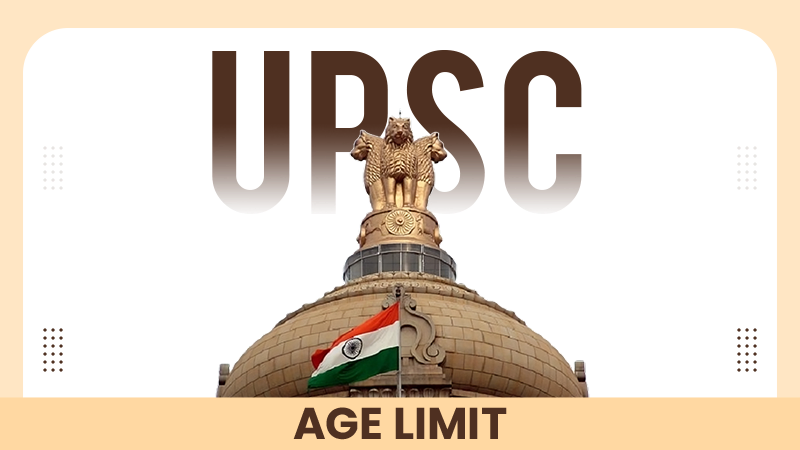
The UPSC age limit is one of the biggest factors in the eligibility criteria of this prestigious examination. Along with rigorous preparation, the varied age limit for different categories also plays a significant role in determining the fate of the aspirants.
So, let’s dive into this comprehensive guide of UPSC age limit for different categories and examinations, answering all the questions related to the eligibility criteria for this dream of millions.
What is the UPSC Age Limit?
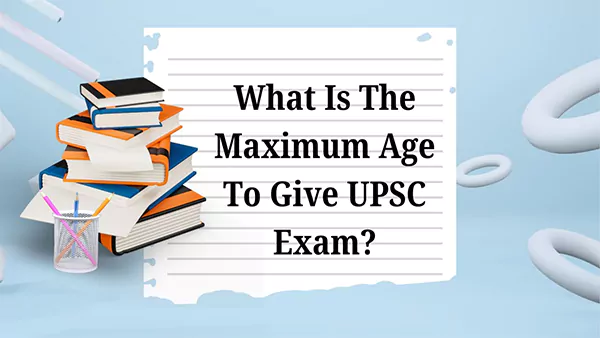
The first and foremost part of the UPSC eligibility criteria is the age limit. Only candidates who fall within the specified age range of 21-32 are eligible to appear for the UPSC CSE exam. However, this age limit is not the same for all categories. As the maximum age limit for the OBC category is 35, and for the SC/ST maximum UPSC age limit is 37.
Reserved categories get various relaxations over general category candidates. Therefore, careful planning is a must, or else there will be a delay in your journey to become the next IAS officer.
Also Read: LLB Full Form: Course Details, Eligibility, Fee Structure, Career Options, & Everything You Must Know
UPSC Age Limit and Other Eligibility Criteria for Different Categories
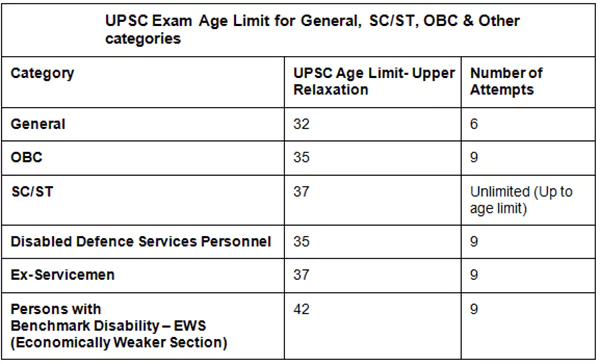
The official notification released in January 2025 has listed the eligibility criteria for various categories. This includes age limits, relaxations, educational qualifications, and the number of attempts allowed for each category.
All candidates must also hold a bachelor’s degree in any discipline from a recognized university to appear for the UPSC CSE exam.
While the educational qualification for all the categories is the same, there are variations in the other eligibility criteria. Let’s discuss the different eligibility criteria for all the categories in detail.
| Note: There is no difference between the eligibility criteria of males and females of any category. |
General
The general category has the strictest eligibility criteria, with no exceptions or relaxations. Hence, it becomes most important for general category aspirants to plan their journey carefully.
Below is the eligibility criteria of the general category:
- Age Limit – The UPSC age limit for general category aspirants is 21-32, with a maximum age of 32.
- Relaxations – No age relaxations are provided for general category applicants, unlike reserved categories.
- Number of attempts – A maximum of 6 attempts is allowed for general category applicants.
Other Backward Classes (OBCs)
The next category in our list is OBC. This category receives the advantage of age relaxations and additional attempts.
Let’s take a look at the eligibility criteria of OBCs mentioned below:
- Age Limit – The UPSC age limit for OBC aspirants is 21-35, with a maximum age of 35.
- Relaxations – A 3-year age relaxation is provided to OBC candidates, making 35 the maximum age.
- Number of attempts – OBCs receive relaxations in the number of attempts allowed. A total of 9 attempts are allowed to them, giving them 3 more opportunities.
Scheduled Castes and Scheduled Tribes (SC/ST)
This category receives the most relaxations in age and the number of attempts, giving them a great advantage over other categories.
The eligibility criteria for SC/ST aspirants are mentioned as follows:
- Age Limit – The UPSC age limit for SC/ST aspirants is 21-37, with a maximum age of 37.
- Relaxations – A 5-year age relaxation is provided to OBC candidates, making 37 the maximum age.
- Number of attempts – SC/ST aspirants are allowed unlimited attempts for the UPSC CSE exam.
Other Categories
There are several relaxations for various other categories also, including economically weaker sections, persons with disabilities, and defense service personnel.
Let’s discuss these categories one by one:
- Economically Weaker Sections(EWS) – There are no age relaxations or an increased number of attempts allowed for this category. The eligibility criteria remain the same as the general category.
- Persons with Benchmark Disabilities(PwBD) – This category is further divided into three categories, which are as follows:
- PwBD (General/EWS): A total of 9 attempts are allowed to them till the age of 42.
- PwBD (OBC): A total of 9 attempts are allowed to them till the age of 45.
- PwBD (SC/ST): Unlimited attempts are allowed to them till the age of 47.
- Defense Services Personnel – Defense personnel disabled in operations are allowed a 3-year age relaxation.
- Commissioned officers and ECOs/SSCOs: They are allowed an age relaxation of 5 years if they have completed military service of 5 years as of 1 August 2025 (subject to conditions).
What is the Nationality Criteria for UPSC CSE?
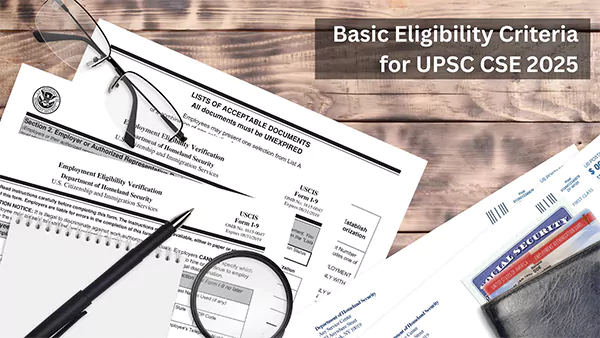
Nationality is also a significant factor in the eligibility criteria for the UPSC CSE. While Indian citizens are eligible for all the services under UPSC, citizens of other nationalities are also eligible for some services.
Let’s take a look at the nationality criteria for various services under UPSC CSE:
- IAS – Only Indian citizens are eligible for the Indian Administrative Services (IAS).
- IPS – Similar to IAS, only Indian citizens are eligible for the Indian Police Service.
- IFS – Indian Foreign Service also considers Indian citizens only.
- Other Services – Citizens of other nationalities are also allowed for services such as the Indian Revenue Service (IRS), the Indian Audit and Accounts Service (IAAS), the Indian Railway Traffic Service (IRTS), the Indian Railway Accounts Service (IRAS), and many more.
These nationalities include:
- Subjects of Nepal or Bhutan.
- Tibetan refugees who came to India before 1st January 1962 with the intention of permanently settling in India.
- People of Indian origin who migrated from Burma, Sri Lanka, Pakistan, or the East African countries of Uganda, Zambia, Zaire, Kenya, the United Republic of Tanzania, Malawi, Ethiopia, & Vietnam to settle permanently in India.
IPS and IAS Age Limit and Eligibility Criteria
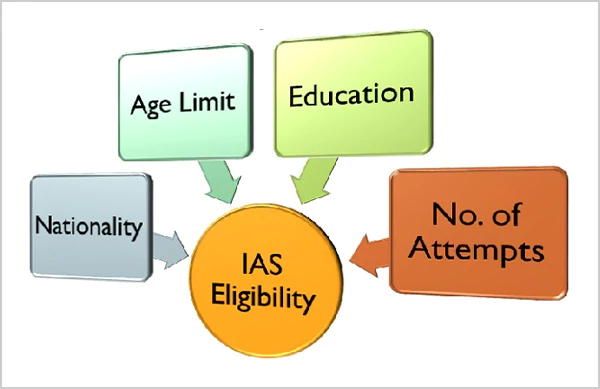
The Indian Administrative Service (IAS) and the Indian Police Service (IPS) are two of the most prestigious services under the UPSC.
The following is the important information that you should know about the criteria of these services:
- The age limit and prerequisites of IAS and IPS are the same as those of UPSC SCE, as they are services of UPSC only. However, only people of Indian nationality are eligible for these services.
- Candidates who have completed a bachelor’s degree from a recognized university, or final year students, are both qualified for IAS and IPS.
- Along with the educational qualifications and age limit, both IAS and IPS have some physical and health standards that should be met. These include height, weight, vision, and hearing ability, among others. These standards are stricter for IPS.
Also Read: What is a Good PSAT Score in 2025? A Complete PSAT Score Guide
PSC Age Limit and Eligibility Criteria
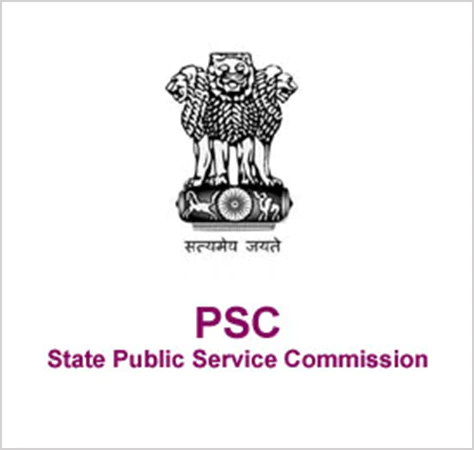
Every state has its own Public Service Commission (PSC), for which candidates passing the PSC examination are recruited. However, the qualifying factors for every state are different.
Some important points on the age limit and eligibility criteria for PSCs are as follows:
- Nationality: Indian citizenship is a mandatory eligibility criterion applied uniformly across all Public Service Commissions (PSCs).
- Age Limit: The age limit for PSCs of different states and positions differs. Additionally, age relaxations are given to various categories, including SC/ST, OBCs, and ex-servicemen, among others.
- Education: While the education qualification may vary as per age limit, most of the positions and states require a bachelor’s degree.
- Number of attempts: This also varies from state to state. Most of the states and positions offer unlimited attempts to candidates of all categories, whether reserved or not.
| Note: To know about a specific state PSC, visit their official website. |
To Sum up
It is important to keep a track of your age and number of attempts, along with studying for the UPSC exam. While all services under the UPSC follow similar criteria in terms of age limit and educational qualifications, there are variations in terms of nationality criteria and for PSC exams.
The IPS and IAS age limit is similar to that of UPSC CSE (21–32 years), as they are services under UPSC only.
Additionally, some relaxations in terms of age limit and number of attempts are also provided to various categories, including SC/ST and OBCs, among others. However, the UPSC age limit for female candidates is similar to that of male candidates, and no relaxations are provided based on gender.
FAQs
Ans: The answer is ‘No”. In order to apply for UPSC, a candidate must be 21 years old by 1st August of the examination year.
Ans: No, a 12th pass cannot apply for UPSC, as having a bachelor’s degree from a recognized university is a must for the UPSC exam. Final year students can also apply for UPSC, but they must submit proof of completing their degree before the mains exam.
Ans: After turning 21, you are eligible to apply for the IAS exam through UPSC CSE. Additionally, you should have completed your bachelor’s degree to apply for the exam. Final-year students are also eligible for the IAS exam.
Ans: While only Indian citizens are eligible for IAS, IPS, and IFS, other services, such as IRS, IRTS, IAAS, and many more, offer opportunities to citizens of other nationalities as well. These nationalities include Bhutan, Nepal, Tibetan refugees, and migrants from a few other countries.
Ans: The number of attempts allowed in UPSC is different for different categories. For the general category, 6 attempts are allowed; for OBCs and PWD candidates, a total of 9 attempts are allowed, whereas unlimited attempts are allowed for SC/ST candidates.
Source: